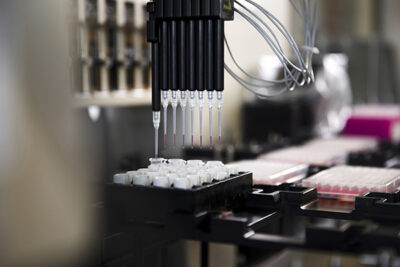By Jonathan Springston, Editor, Relias Media
Genetic testing and precision medicine are exciting advances in healthcare, but it is important to remember ethical practices, according to recently released guidance from the American College of Physicians (ACP).
In response to the fast-moving field of genome sequencing technology, the ACP published a four-point position paper to help clinicians navigate the associated ethical issues. The authors encouraged robust and open conversations between physicians and patients regarding precision medicine and genetic testing, especially the risks, uncertainties, and benefits of direct-to-consumer tests.
“Importantly, there will be some patients for whom genetic testing is clearly recommended (for example, patients with high-grade serous ovarian cancer),” the authors wrote. “Genomic testing, however, may predict or detect susceptibility to diseases without the ability to prevent, treat, or cure them. Patients and clinicians will need to appreciate the nuanced distinctions between highly predictive genetic variants that indicate the presence of inherited conditions and tests that offer probabilistic information, sometimes indicating only low or moderate risk.”
Certainly, physicians should rely on scientific evidence when framing the risks and benefits of genetic testing. “This entails consideration of whether the test is analytically valid (does it accurately detect the presence or absence of a genetic variant?), clinically valid (does it accurately relate the variant to the disease?), clinically useful (will the results inform the diagnosis, treatment, or prevention of a disease?), and personally useful to the patient (will the results provide important personal or familial information to inform decision-making?), as well as the harms associated with the test, including potential negative consequences for the patient's life,” the paper authors explained.
Perhaps most importantly, any patient data must be secured and remain confidential. “Safeguarding the privacy of patients' information is a manifestation of respect for patient autonomy and control over who can access the patient's genetic information. Patients have a right to decide with whom they want to share their genetic information, and healthcare professionals have a corresponding obligation to respect patients' decisions,” the authors wrote. “Patients should be informed that data protection has limits and the ability to protect privacy and confidentiality is not absolute, and that privacy and confidentiality may be breached to prevent serious harm to others.”
For more on this and related subjects, be sure to read the latest issues of Medical Ethics Advisor.

